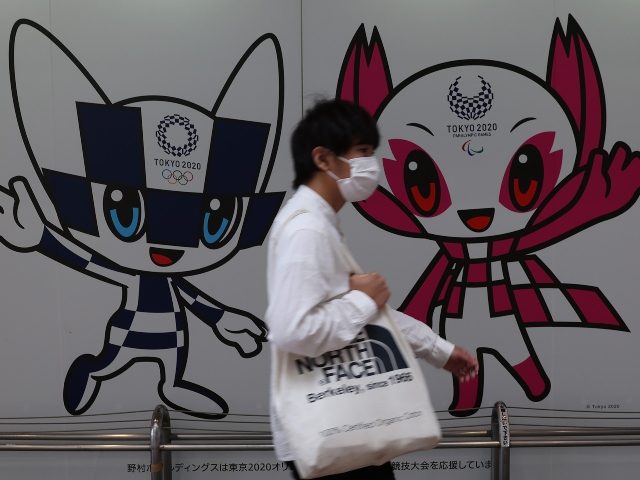The Japanese government on Friday extended a coronavirus “state of emergency” order for Tokyo and other Japanese regions until May 31, just 53 days before the Tokyo Summer Olympics are set to begin.
Japanese Prime Minister Suga Yoshihide ordered the extension of Tokyo’s state of emergency, in place since April 25, to curb a new wave of Chinese coronavirus infections in the national capital ahead of the Summer Olympics, which are scheduled to take place in Tokyo starting July 23.
“We need to maintain a strong sense of vigilance and take further steps [to curb infections],” Suga told reporters at a press conference on May 7 after finalizing the state of emergency extension, according to Kyodo News.
The extended state of emergency order applies to Tokyo — Japan’s most populous prefecture and home to over 37 million people — the greater Osaka area, and the prefectures of Aichi and Fukuoka. The order prohibits restaurants and bars from serving alcohol or offering karaoke services and requires them to close by 8:00 p.m. Businesses that refuse to comply with the order face a fine of up to 300,000 yen ($2,750). The Japanese government has asked most businesses to arrange for their employees to work from home under the order, according to Kyodo News.
Japan’s government on Friday approved some adjustments to the state of emergency order in an effort to mitigate the strain on the local economy that the restrictions impose. Large commercial facilities — defined as having more than 1,000 square meters of floor space — are allowed to reopen starting May 12 as part of the mitigation efforts. The large commercial facilities, which include department stores and movie theaters, are still expected to close by 8:00 p.m.
The Japanese government has replaced a ban on spectators at sporting matches and concerts imposed by the April 25 state of emergency order with an attendance cap of “5,000 people or 50 percent of the venue’s capacity,” Kyodo News reported. The newly reinstated spectator events must end by 9:00 pm.
Tokyo Gov. Yuriko Koike and Osaka Gov. Hirofumi Yoshimura said on May 7 they would both continue to ask large commercial facilities in their respective cities to remain closed despite the federal government’s adjustment to the state of emergency order allowing them to reopen. The governors said the Chinese coronavirus situations in their cities had not yet improved enough to allow such facilities to resume business.
“I can’t help but regard the situation as still quite serious,” Tokyo Gov. Yuriko Koike told reporters on May 5 of his city’s Chinese coronavirus caseload.
Japan recorded a record-high number of daily deaths from the Chinese coronavirus — 148 — on May 7. The number of new daily cases of the disease in Japan exceeded 6,000 on the same day, which is the most daily infections the country has documented since mid-January.
“According to the [Japanese] Ministry of Health, Labor and Welfare, at least 1,131 COVID-19 [Chinese coronavirus] patients were in serious condition [as of May 7], also a record high and stoking fears of further strains on the health care system,” Kyodo News reported.

COMMENTS
Please let us know if you're having issues with commenting.